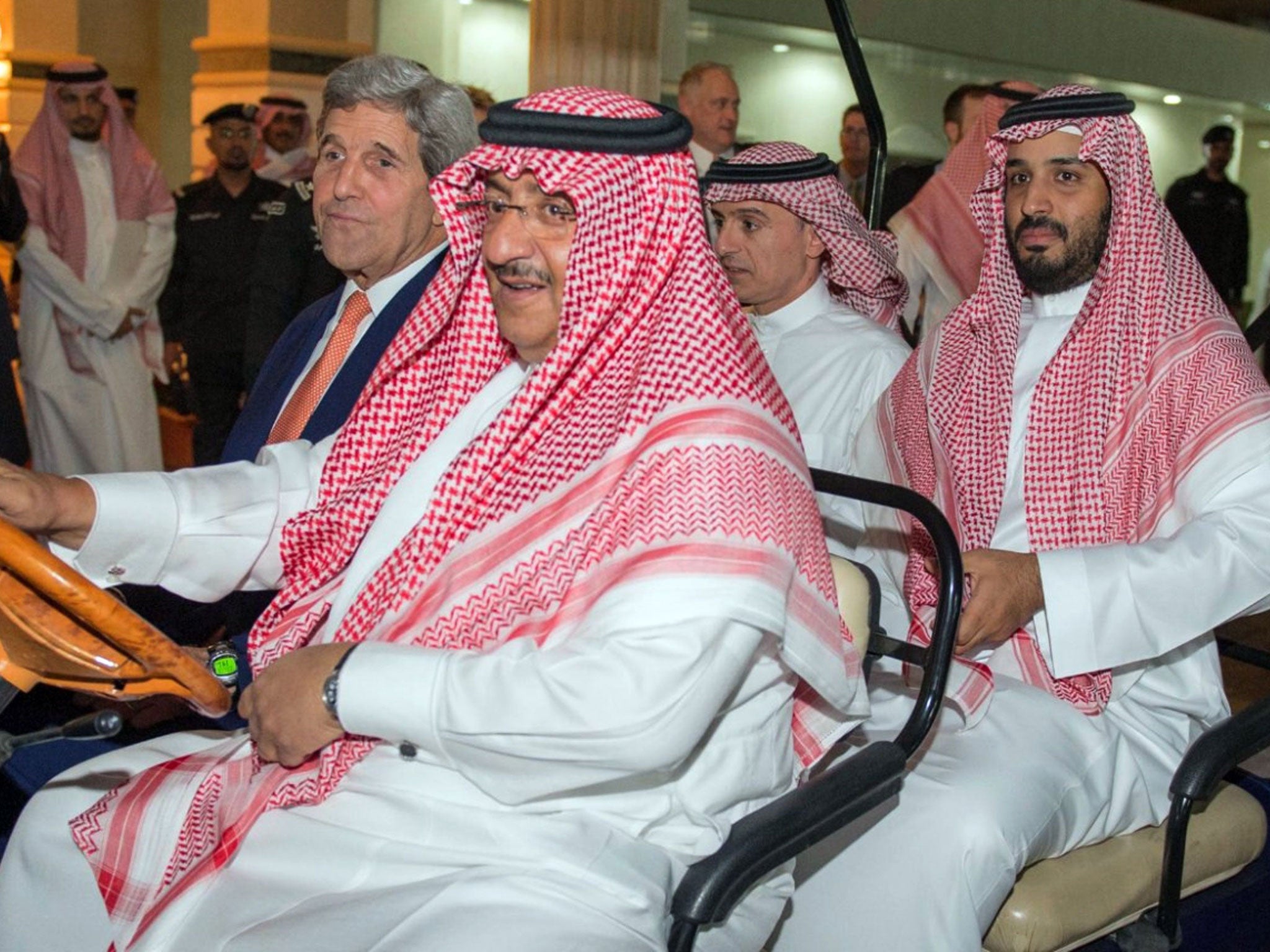Yemen war rapidly becoming as messy and complicated as the conflict in Syria
Add Isis to the mix and you have a lethal cocktail set brewing by the actions of a reckless young Saudi prince in a terrible hurry

Your support helps us to tell the story
From reproductive rights to climate change to Big Tech, The Independent is on the ground when the story is developing. Whether it's investigating the financials of Elon Musk's pro-Trump PAC or producing our latest documentary, 'The A Word', which shines a light on the American women fighting for reproductive rights, we know how important it is to parse out the facts from the messaging.
At such a critical moment in US history, we need reporters on the ground. Your donation allows us to keep sending journalists to speak to both sides of the story.
The Independent is trusted by Americans across the entire political spectrum. And unlike many other quality news outlets, we choose not to lock Americans out of our reporting and analysis with paywalls. We believe quality journalism should be available to everyone, paid for by those who can afford it.
Your support makes all the difference.When Mohammed bin Salman, the Saudi Deputy Crown Prince, Defence Minister and favoured younger son of King Salman, launched Operation Decisive Storm on 26 March last year, it must have seemed like a slam dunk: a quick, efficient bombing campaign to put Yemen’s rebel Houthis in their place.
Victory would sweep his older rival, the kingdom’s Interior Minister and Crown Prince Mohammed bin Nayef, into the shadows. And it would establish “MbS”, as he is known, as a forceful leader of a new generation of Arabs, a young warrior prepared to initiate sweeping change rather than follow the expectations of America and the strictures of ageing Al Saud family members.
Now, nearly a year on, much of Yemen lies in ruins and the civilian death toll has risen above 3,000.
The Saudis may claim to have accomplished their aims but it is hard to fathom how. The Houthis still control the capital Sanaa and much of north Yemen. In the south, al-Qaeda in the Arabian Peninsula (Aqap) has made startling gains and now controls the oil rich province of Hadramaut and its port city of Mukalla. And Isis, no stranger to taking advantage of chaos, has established a menacing presence.
Aden, recaptured from the Houthis last August, has been the scene of numerous terror attacks and though the putative president Abd Rabbuh Mansur Hadi has been reinstalled, several of his key officials have been assassinated, some by Aqap, others by Isis. The situation in the city has become so insecure that a coalition ally, the United Arab Emirates, has reportedly pulled its troops from street patrols to minimise casualties.
The Saudis are talking about “the combat phase coming to an end” and are promising reconstruction. We have been here before. Last April they said the same thing and then kept on bombing. Now, though, the popularity of the war in Saudi Arabia is waning as military casualties grow. Officially 300 are said to have died but reliable sources have told The Independent the figure is at least 10 times higher.
So MbS has begun to look for a way out. So, too, have the Americans, who have woken up al-Qaeda being the real threat. They are piling pressure on the Saudis to call time. That, however, is not going to be easy.
The Houthis are prepared to deal but on their terms which means that the woeful Mr Hadi, the internationally recognised president, will likely be thrown to the wolves. Former president Ali Abdullah Saleh, pushed out by the Saudis in 2012 has been fighting alongside the Houthis. Mr Saleh still commands a sizable remnant of the Yemeni regular army. The Saudis see him as a renegade and will want no part of him. If the Houthis cut him loose Mr Saleh will be left with only one option: to play the spoiler to any peace talks.
The Emiratis went into the war hoping to secure Aden and the south as a sphere of influence. They will want a say. As will Saudi Arabia’s regional foe Iran, which backs the Houthis, and remains a potent behind-the-scenes player.
Then there is Aqap. To remove them from Hadramaut would require a whole new war. Add Isis to the mix and, in a neighbourhood already seething with violence, you have a lethal cocktail set brewing by the actions of Mohammed bin Salman, a reckless young prince in a terrible hurry.
It is, in short, a situation that is rapidly becoming as complicated and messy as that in Syria.
Join our commenting forum
Join thought-provoking conversations, follow other Independent readers and see their replies
Comments